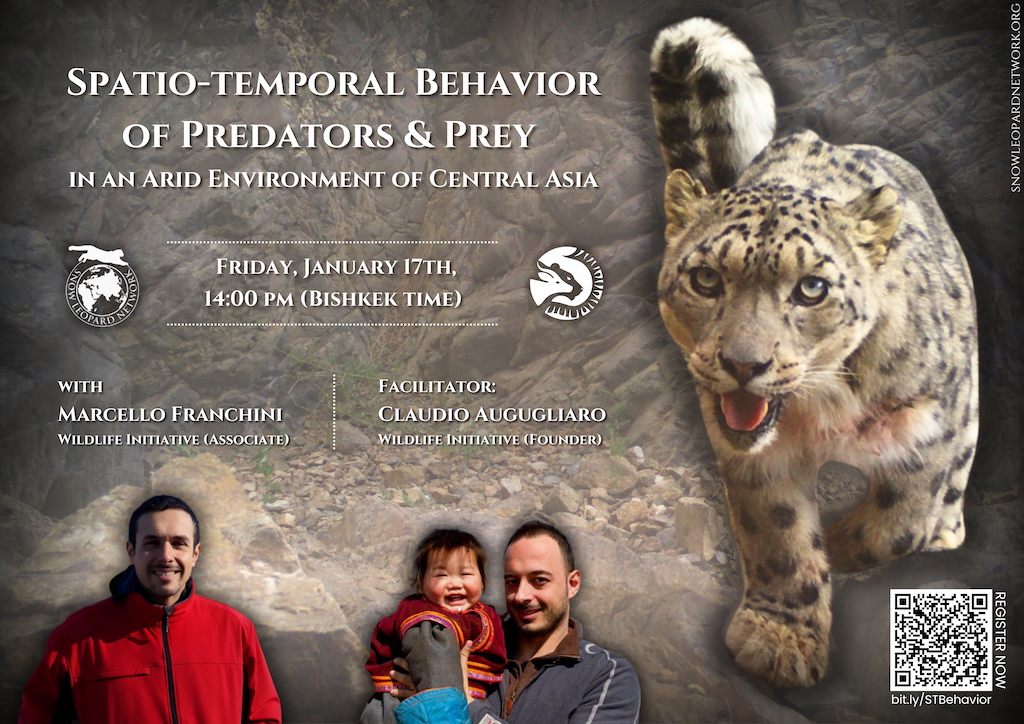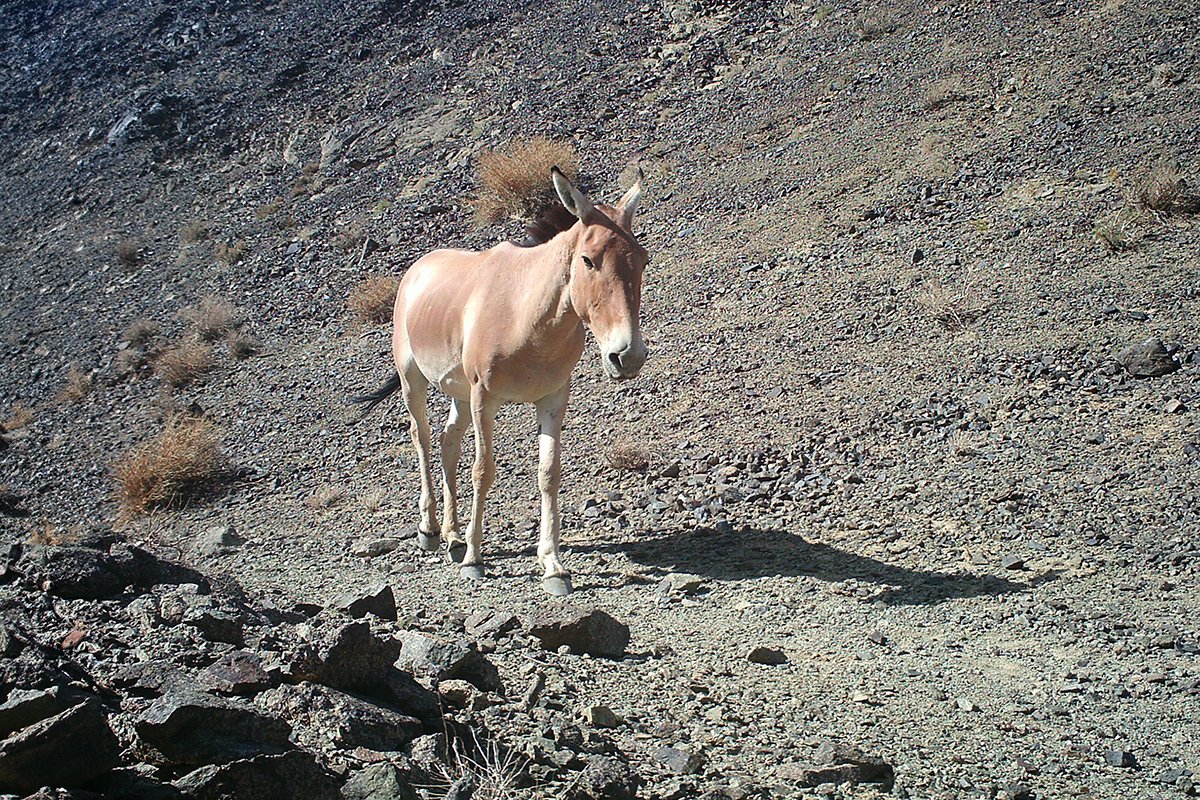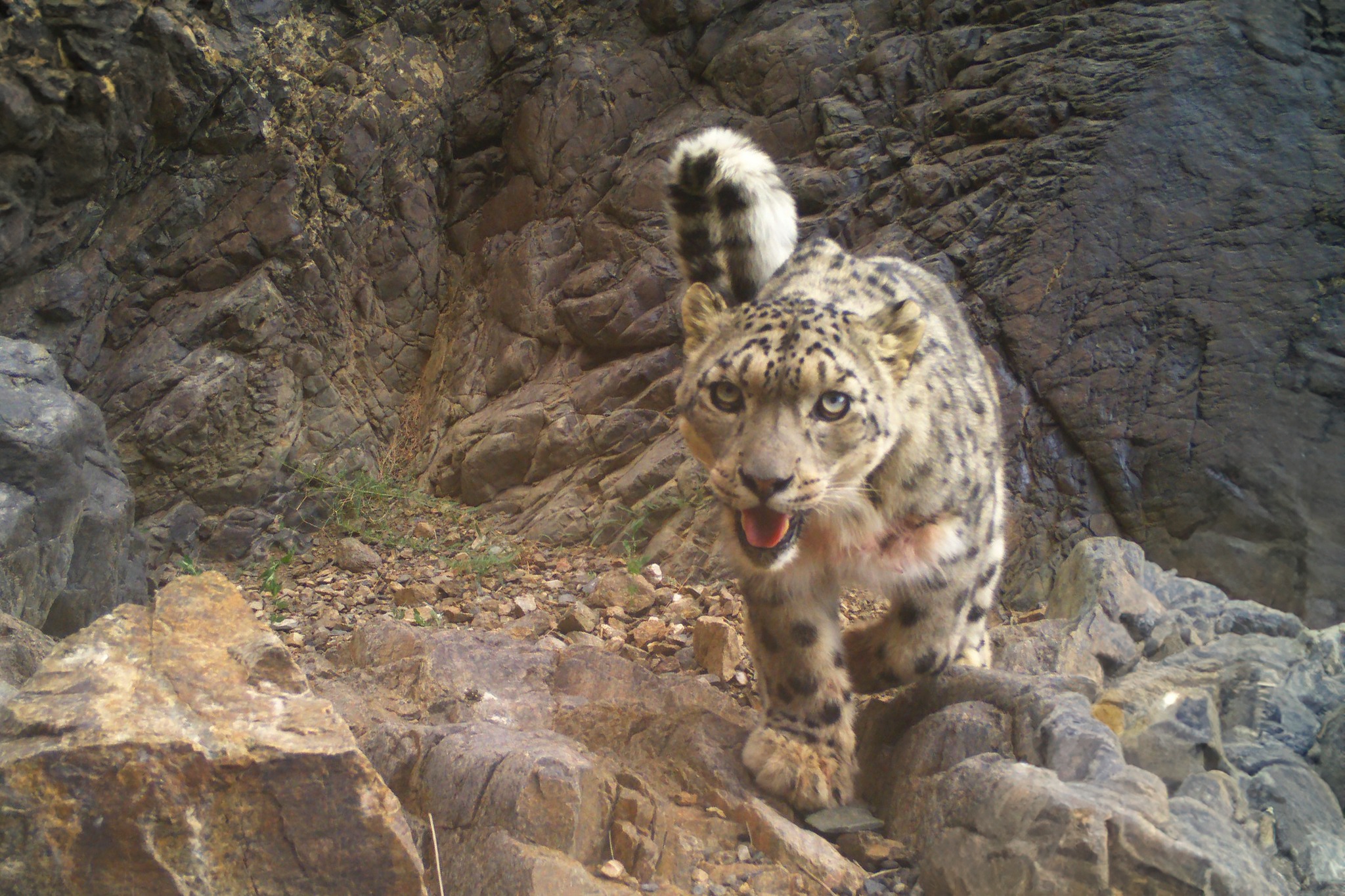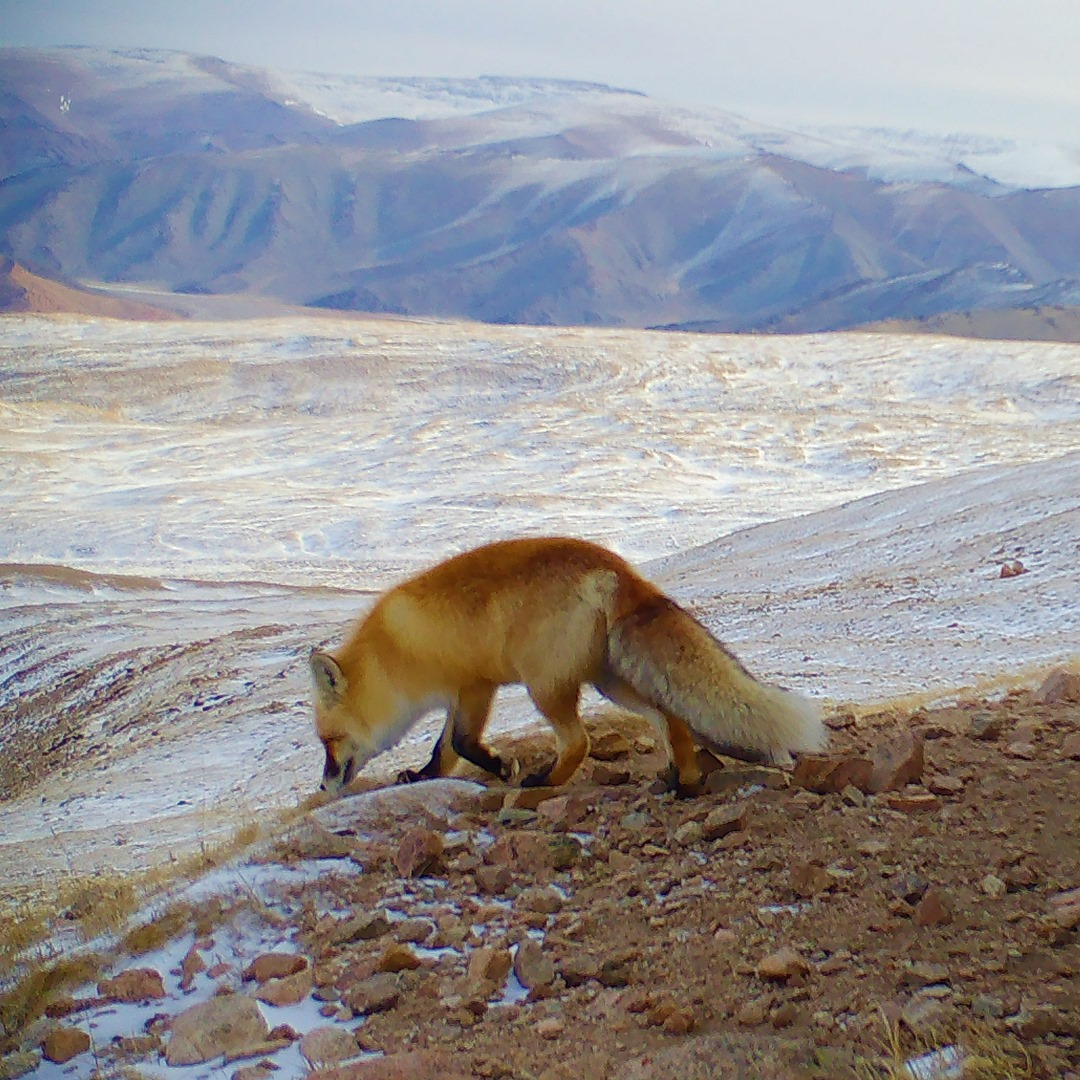We wish our members a very happy 2025 and as we head into the new year together, the Snow Leopard Network is excited to invite you to join us for our first webinar of the year with Marcello Franchini, an associate member of the NGO – Wildlife Initiative and Claudio Augugliaro, founder of the Wildlife Initiative.
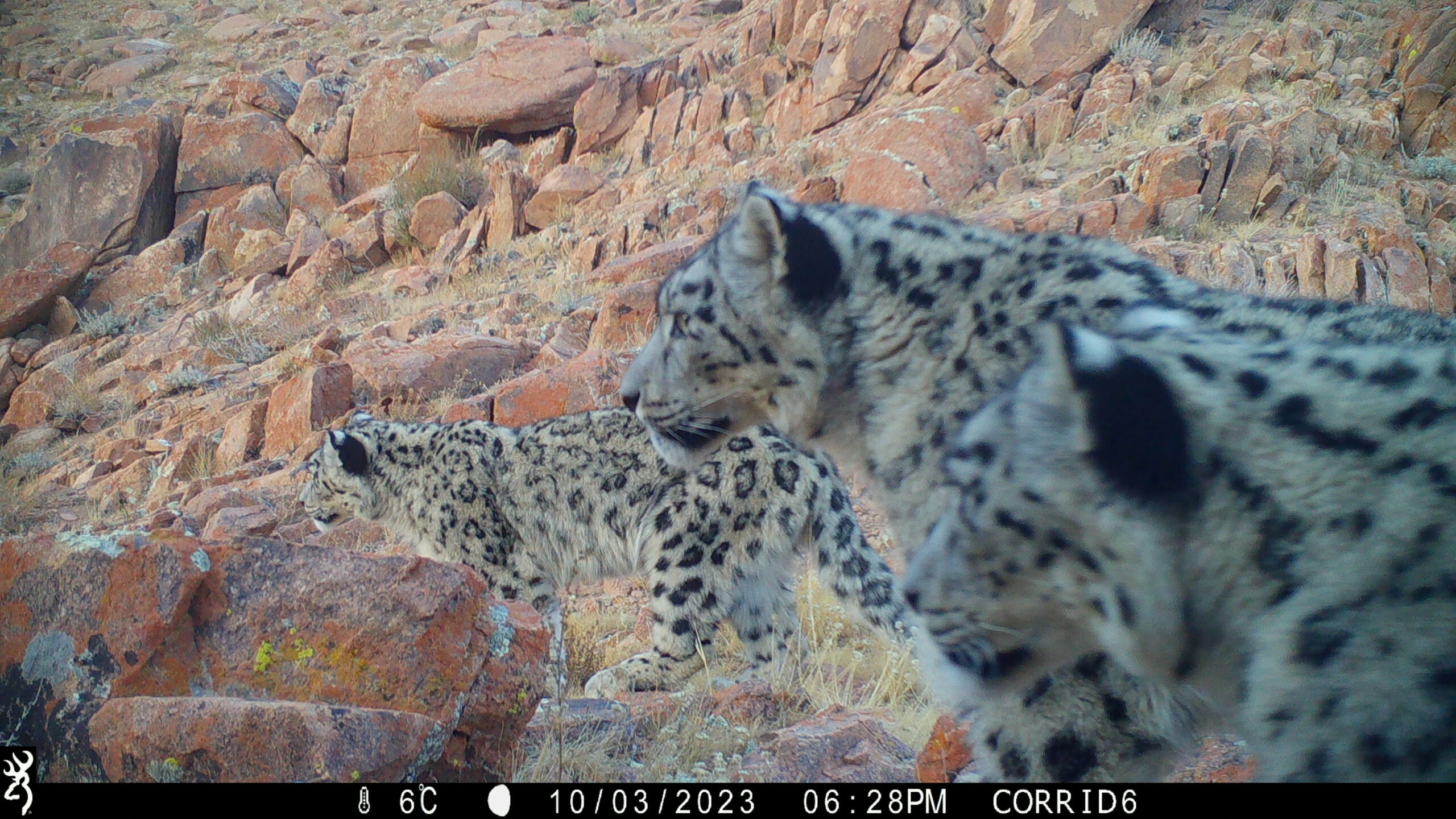
About the Talk:
The mechanisms of interactions between apex predators and smaller carnivores may range from competition to facilitation. In contrast, interactions between predators and prey are primarily driven by prey reducing the likelihood of encounters with predators. In this study, we investigated (1) the spatio–temporal interactions between an apex predator (the snow leopard Panthera uncia) and a mesopredator (the red fox Vulpes vulpes), and (2) the temporal interactions between the snow leopard and its potential prey (Siberian ibex Capra sibirica, argali sheep Ovis ammon, Asian wild ass Equus hemionus, and Tolai hare Lepus tolai) using camera traps in the Mongolian Great Gobi–A, an area covering approximately 44,190 km². The probability of occurrence for the red fox was higher in the presence of the snow leopard than in its absence. Additionally, the activity pattern of the red fox mirrored that of the snow leopard, with both species being most active at sunset. This positive spatio–temporal interaction suggests that the presence of the snow leopard may provide scavenging opportunities for the red fox. However, other explanations cannot be ruled out. Among the prey species, the Siberian ibex and argali sheep were primarily active during the day, whereas the Asian wild ass and Tolai hare exhibited more nocturnal activity. These findings suggest that potential prey species (particularly the Siberian ibex and argali sheep) may adjust their behavior to reduce the likelihood of encounters with the snow leopard. Our results highlight complex interactions between apex and smaller predators, as well as between the apex predator and its potential prey. However, further research conducted over a longer time period, incorporating estimates of local prey abundance and dietary analyses of predators, is needed to provide more comprehensive insights.
About our Speaker:
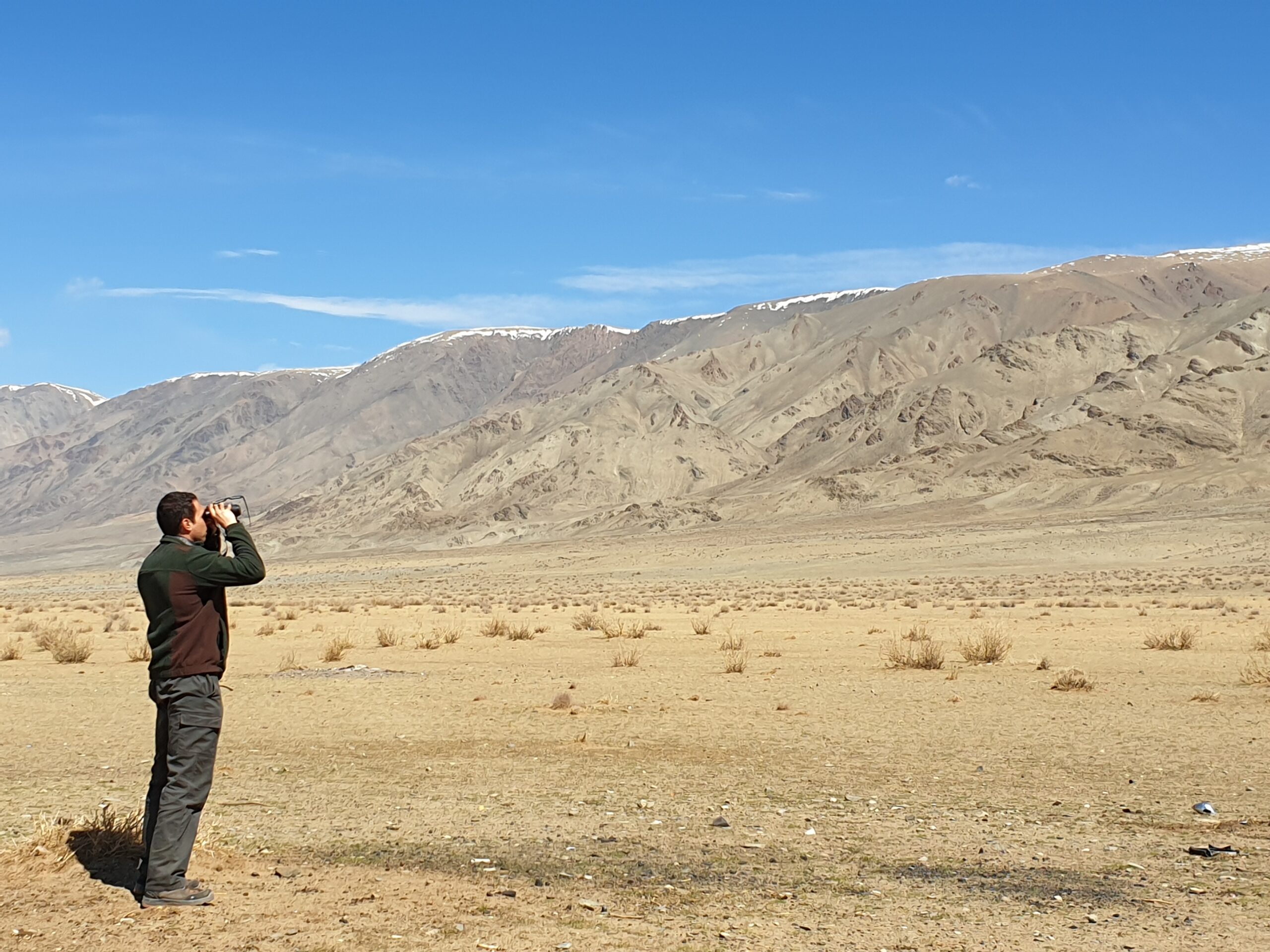 Marcello Franchini is a wildlife biologist with a keen interest in the behavioural ecology and conservation of medium–sized and large mammals, particularly carnivores. He obtained a Bachelor’s Degree in Natural Sciences at the University of Modena and Reggio–Emilia (Italy) and a Master’s Degree in Ecology and Nature Conservation at the University of Parma (Italy). The project for his Master’s thesis focused on addressing the conflict between pumas and livestock ranchers in the Argentine Espinal, where he spent nearly six months in 2015. Since June 2017, he has been working at the University of Udine, North–Eastern Italy. In June 2023, he successfully defended his Ph.D. thesis, which focused on the socio–ecological factors exacerbating conflicts between large carnivores and extensive husbandry practices in the mountainous areas of North–Eastern Italy.
Marcello Franchini is a wildlife biologist with a keen interest in the behavioural ecology and conservation of medium–sized and large mammals, particularly carnivores. He obtained a Bachelor’s Degree in Natural Sciences at the University of Modena and Reggio–Emilia (Italy) and a Master’s Degree in Ecology and Nature Conservation at the University of Parma (Italy). The project for his Master’s thesis focused on addressing the conflict between pumas and livestock ranchers in the Argentine Espinal, where he spent nearly six months in 2015. Since June 2017, he has been working at the University of Udine, North–Eastern Italy. In June 2023, he successfully defended his Ph.D. thesis, which focused on the socio–ecological factors exacerbating conflicts between large carnivores and extensive husbandry practices in the mountainous areas of North–Eastern Italy.
His primary research activities revolve around human–carnivore conflict and coexistence. As an associate member of the NGO Wildlife Initiative, his role primarily includes studying the ecological aspects of large predators and conducting human–dimension studies to scientifically assess the factors leading to the insurgence of negative interactions with traditional grazing activities.
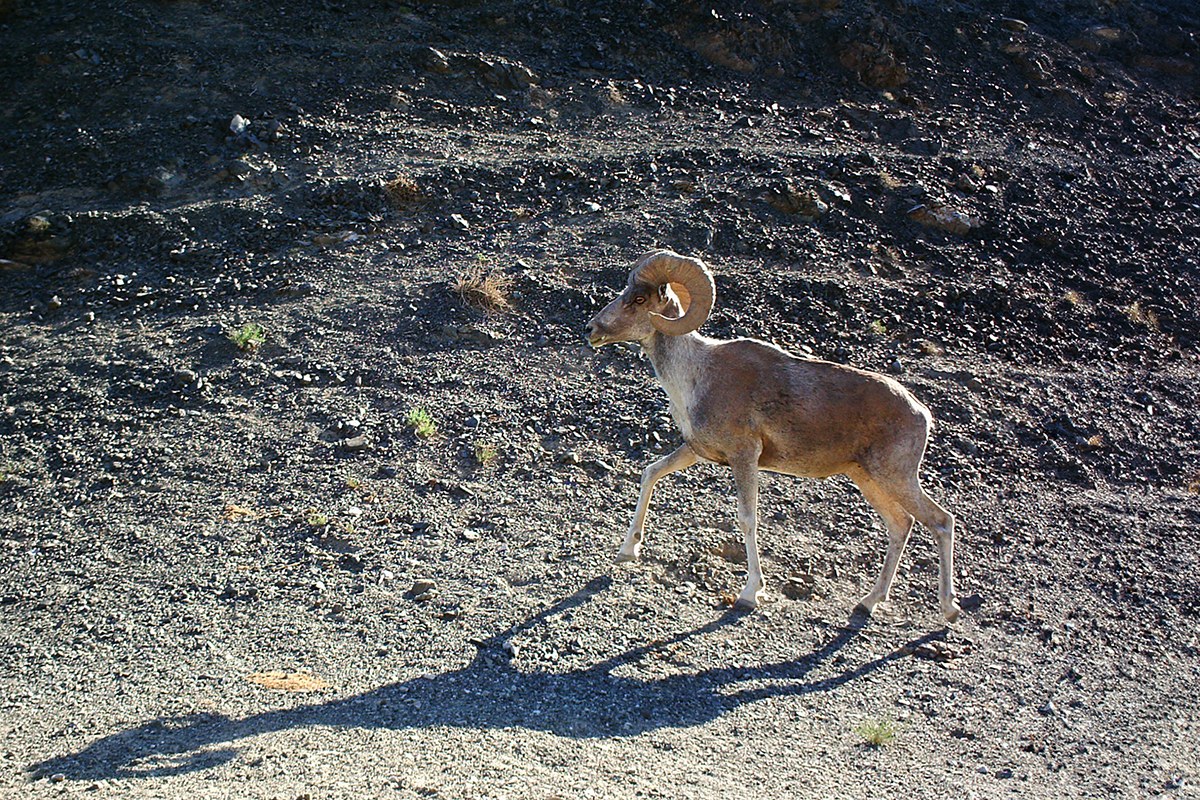 About our Facilitator:
About our Facilitator:
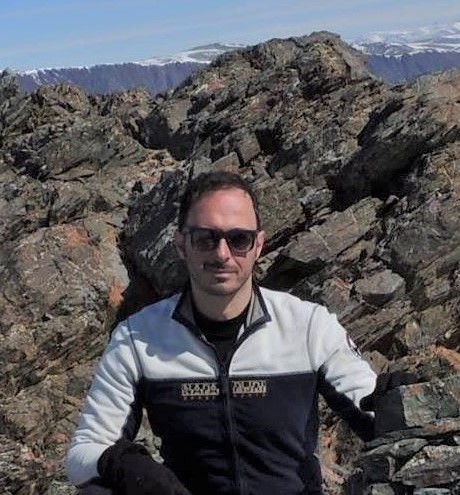 Claudio Augugliaro is an Italian wildlife ecologist with a focus on ecology and conservation. Claudio completed his master’s degree in ecology and biogeography in 2009, followed by a second-level master’s degree focusing on the Washington Convention (CITES). In the subsequent years, he provided scientific and technical support for the CITES EU Scientific Authority.
Claudio Augugliaro is an Italian wildlife ecologist with a focus on ecology and conservation. Claudio completed his master’s degree in ecology and biogeography in 2009, followed by a second-level master’s degree focusing on the Washington Convention (CITES). In the subsequent years, he provided scientific and technical support for the CITES EU Scientific Authority.
In 2014, Claudio moved to Mongolia, and in 2015, began his work on snow leopard. His research on the ecology and conservation of this species in western Mongolia became the topic of his Ph.D. Throughout his work in Mongolia, Claudio has engaged with various governmental and non-governmental institutions, as well as international partners across Europe and the US. They have ongoing projects on snow leopard in the Altai Mountains in partnership with the Snow Leopard Conservancy, focusing on mitigating human-snow leopard conflict by implementing community-based monitoring of carnivores.
Additionally, Claudio is actively involved in studying and protecting the Pallas’s cat. Claudio is a member of the Pallas’s Cat Working Group Steering Committee since 2020. In the same year, he founded Wildlife Initiative NGO, which aims to conduct research and conserve threatened and lesser-known species. Their current projects and registered branches are in Mongolia, Namibia, the Democratic Republic of Congo, and Guatemala.
Date/Time:
Friday, 17th January at 14:00 PM (Bishkek time)
Location:
ZOOM, to join this talk, REGISTER HERE
Please note:
- If you have never used Zoom before, we recommend that you try the link 10 minutes before the start of the lecture.
- Please feel free to write questions in the comment area and there will be time for questions/discussion at the end of the talk.
- Please note that the session will be recorded and later featured on the SLN website. If you have concerns about this please let us know before the session

